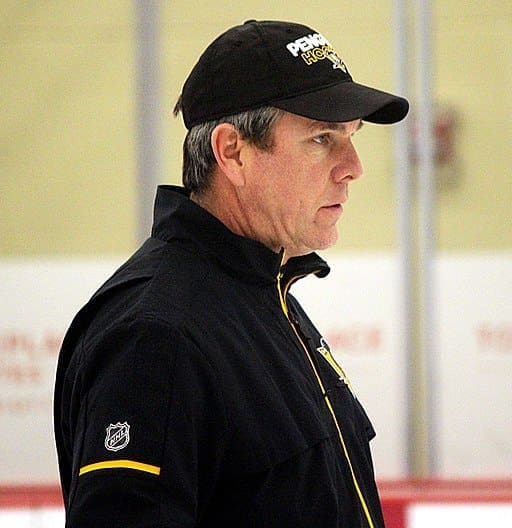Penguins
Sullivan Defends Penguins’ Style–‘We Can Still Skate’

CRANBERRY TOWNSHIP, Pa. – It’s been a question surrounding the Pittsburgh Penguins – more than a question, a flat-out criticism in some circles, especially during their 1-7-2 swoon – that they have lost their advantage over most of the rest of the NHL because they no longer have enough speed to separate themselves from the pack.
Coach Mike Sullivan made it clear Tuesday that he has heard those things, and he passionately shot down the criticism and defended his players and his coaching style.
“From a style standpoint or from a team concept or team strategy standpoint, we believe from the bottom of our heart that we’re playing the game that gives our core players the best chance to be successful,” Sullivan said.
The Penguins won the Stanley Cup in 2016 and 2017, relying heavily on speed plus the skill of its top players. Sullivan said those elements are still there, including the dominance and speed of top players Sidney Crosby, Evgeni Malkin, Phil Kessel and Kris Letang, all over 30.
“I would agree that the league is getting faster,” Sullivan said. “I would agree that for the most part it’s a copycat league, and teams tend to try to emulate the teams that have success. When you look at our team over the last handful of seasons, we’ve had pretty good success with a certain style of play.
“That style of play is built on the core of our team. When you look at the core of our players – Crosby, Malkin, Kessel, Letang – all of those guys can skate. They can still skate. And so we believe there’s a certain way or style of play that gives our team the best chance to win.”
Sullivan said it’s more about what other teams are doing to make things tighter among the elite clubs.
“Now have some teams closed the speed gap? For sure,” he said. “I think that’s just the evolution of the game. Show me a team in the league that’s trying to play slow that’s winning. Show me a team in the league that’s trying to play on their heels that’s winning.”
Taking aim at the Penguins or predicting their demise as a perennial Cup contender might make for good sport these days, but Sullivan said the blemishes in their game lately are correctable and not an indication that his players have lost a step.
“It’s easy to throw darts and suggest that the style of play is the reason why we’re having the struggles that we’re having,” he said. “We can do a better job executing. We can make smarter decisions as a group, work together and work cooperatively together.
“I think there’s an assumption out there that we just throw caution to the wind, (that) there’s no calculation to our game and our aggression. There’s inherent risk in being passive, too, and letting teams come at you. You look at the core of our team, our team can still skate. Now can other teams skate? Sure they can. But we are by no means a slow hockey team. We can still skate.”
Sullivan said the Penguins’ puck-moving ability continues to give them an edge — “There’s no better speed game than the ability to change the point of attack because you can move the puck,” he said – and that they continue to work on other aspects that have been faltering, such as breakouts and overall defensive play.
Asked if the issue is getting the team to be consistent over 60 minutes, Sullivan hedged.
“Momentum’s a big part of it,” he said. “There’s going to be times in the game where our opponents have momentum. It’s our ability to get it back without getting hurt – that’s where we’ve got to do a better job. A lot of that is recognizing it and having situational awareness, keeping the game simple and staying on the right side of the puck – or staying on the right side of people, more importantly – so that we make it harder for our opponents to generate the types of scoring chances they have.
“If our opponents do push, which inevitably they do through the course of the game, we’ve got to make sure that we counteract that.”
Perhaps in the same way that Sullivan pushed back against criticism of the Penguins.












